Charles Pakana (Victorian Aboriginal News):
Today’s guest on the Referendum 2023 Tapes podcast is Jason Mifsud, a highly active member of the Kirrae, Peek and Tjab Whurrong people of the Gunditjmara nation in South West Victoria. He’s currently the head of First Nations Affairs & Enterprise at Wesfarmers, runs his own consulting company, and among many other roles, has previously been a senior advisor on indigenous and multicultural affairs for the AFL.
Jason, thanks for joining me today.
Jason Mifsud:
Thanks, Charles.
Charles:
Jason, you position yourself as a cautious yes when it comes to the referendum and the proposed Voice to Parliament. Explain what it is to be a cautious yes and what it is you’re cautious about.
Jason:
Great question. I am a cautious yes, I think. I’m an optimist. I believe that our people not only need a seat at the table, but a share of the table. And clearly the current reform is asking Australians to give us that right. And for me, it is a right that we deserve. That call is generations old now, so it’s not a new call by any stretch of the imagination. However, we should be cautious around what it will inevitably look and feel like by way of how the legislation will get designed and who will inform that design, if we are successful on October 14.
I just think there are some points of clarity that personally I would like, and that is around the Voice being either selected or elected. And I know for some people that’s semantics, but for me, given that I come from a democratic community and the right for our people to vote for our people, to pick our own team, is a very important right, so that hasn’t clearly been spelled out to me. And despite seeking some confirmation on that, I… There’s some cute talk that happens around it, and I appreciate some of the sensitivities around the legislative design will determine some of those particular things. But I just think there are some markers that…
Charles:
But surely that’s going to have to be a bit of a hybrid model, because obviously in Victoria we already have an Aboriginal electoral role and it’s fairly democratic in that process, as it has been with the First Peoples’ Assembly of Victoria. In other remote areas it may not be practical to have that. Could you see a hybrid model being implemented and even practical?
Jason:
Absolutely. And we should be told that. That’s my point around just clarity. We could disagree what it is, but we should be told what the principles behind that would be. Now ,I would argue quite strongly in having been part of the treaty process here in Victoria, as you know, from a design point of view and so forth, any initial Voice process should lift up the existing structures that we have across the country. Whether it’s the Northern Land Council get to elect their representative, whether it’s the Cape York Institute get to elect their representative group, whether it’s the Yarra and the Kimberley, there is enough coverage, as imperfect as it might be, for me to believe that we should have some more clarity than we currently do.
For me, it is a point of clarity and a point of contention, but not strong enough to be an advocate against the success of the Voice. I think one of the values of our people is around sustainability, and if you apply the seven generation rule, it’ll be bit rough early, it’ll be a bit murky early, it’ll take us the good part of a decade to iron out all those particular creases. I’m comfortable to have a longer-term view on the benefit of those particular decisions, but I just think we deserve to have a little bit more clarity than we do. But as I said, I’m an in-the-tent person, we need to continually advocate to get more people in the tent. But I do think we deserve to have a little bit more information than we’ve got, just around some of those fundamental things, notwithstanding the legislation will play out in its own time.
Charles:
But government’s argument though is that the legislative process is going to take place if the yes vote does get up. And as we know, within the legislative process in this country, really everyone has a say or a potential say. It’s got to go through the lower house, it’s got to go through the upper house, it’s got to go through public hearings, call on expert witnesses. Don’t you believe that that process could be rigorous enough?
Jason:
What I know is, once government starts to design legislation for our community, we might be asking for an apple, but we inevitably get the pineapple. I don’t have a lot of faith in that process, just based on history.
Charles:
Sure.
Jason:
And this goes to my other point around, is the existing referendum council going to be a key advisor to that legislative process? Now, if it is, just tell us. That’s fine. I think, once again, we could disagree with it and we could disagree who’s on it. But I think there’re just points of clarity that give people confidence in regards to getting to October 14 with chins up and our chests out, knowing that we absolutely are clear on what the phase two, three and four might look and feel like. And of course, there’ll be some variance within that because of, to your point, some of those political structures that typically we’ll have to work through.
So, no, I wouldn’t have a lot of confidence given what history has said around legislative design for our communities. However, once again, that doesn’t necessarily push me out of the [inaudible 00:05:38], I’m still in. But I think for a lot of people who are thinking about this deeply, they’re important markers that might just build some confidence. It might get some soft nos across to some soft yeses, or it might get some soft yeses to hard yeses, and then that helps mobilize people over the next three weeks.
Charles:
You are bringing together an element of pessimism when it comes to defining legislation, and optimism because you’ve actually said you are this cautious, yes. What’s actually pushed you on the side of at least I know what I’m going to be voting on the 14th of October?
Jason:
There’s no other pathway that’s on the table.
Charles:
Sure.
Jason:
Better the devil you know than the devil you don’t. The status quo, it’s just not acceptable. And for sure, there’s the cute talk around we’ll go back to a referendum and just recognize our mob in the Constitution.
Charles:
Ah, yes.
Jason:
That’s nice to hear, but it’s not going to be the substantive and structural reform that our community needs over a couple of generations. In the absence of any other alternative structural or substantive reform, let’s secure our rights and our position on October 14, and then on October 15 and onwards, we get back to work and make the best of that with what we can. And then future generations will build upon that, as we’re doing on the back of previous generations.
I’m not overly concerned with it being perfect. I think secure our rights. Secure our right to be in the Constitution and our right to have an enshrined Voice. And then I think we get back to work and make that as effective and as efficient as we can over the next decade or two. That’s where my optimism comes from. But I’m pragmatic and I’ve walked around this type of thing, and often enough, to know that there’ll be some blind spots that we’ll have to navigate, but…
Charles:
That’s what I want to address now, because you have mentioned now a couple of times, there’s almost this decade before… If we do get it over the line on October the 14th and we can get some effective legislation in, what do you think would be the key hurdles facing the construct of an effective Voice to Parliament, if we do get it over the line on the 14th?
Jason:
This is where I think as a community, as an Aboriginal title and community, this is where it’s incumbent upon us, so we will need to work out what are the qualities and the characteristics and the processes that we want to fight hard to get into that legislation to ensure that the right representation is being elected onto that Voice. Now, that’s a hard conversation, it’s a complex conversation. It just takes time, so we should be realistic about that. For me, when I say a decade, Charles, what we need to do is to have a generation of our community believe being on that Voice can make a substantive change. The quality of those elected representatives, the characteristics of those representatives, and the work program that that Voice gets to focus on, I think it’ll take a good part of a decade for the majority of our community to have trust and confidence in the whole process. I can live with that, from that point of view.
And then inevitably, it’ll take a decade for any policy change to be measurable in the areas that are tangible and material for our community, whether that is in employment, whether that is in the growth of the Aboriginal business community, whether that is in some of the more intractable issues that remote Australia, remote communities, have to be contending with. What does success look like over that 10-year period? Is its trust and confidence from the majority of our people that the Voice is legitimate, it’s authentic, and it’s focusing on the right things. And of course, that looks and feels different for every region, given the challenges are somewhat different, but not dissimilar, in each region.
Charles:
This is actually very similar to some conversations that you and I had a number of years ago in the lead up to the election of the First Peoples’ Assembly of Victoria, finding the right people, getting the ground rules set up right, establishing trust within the community, identifying the key issues. Admittedly though, the First Peoples’ Assembly of Victoria has done significantly more in a shorter period of time than we may be looking at with a Voice. But are there lessons that you believe could be learned in the implementation of a Voice from the First Peoples’ Assembly of Victoria? Because it is quite a success story.
Jason:
It’s an enormously successful story, enormously. Everybody involved in the process, regardless whether you’re on the front, middle or the back of the bus, everybody that’s been on the bus should have enormous pride on what we’ve got done. Of course, not everybody agrees with it, all of those particular things. What are the lessons learned? The lesson that’s learned, you’ve got to open the bowling. To start the game, somebody’s got to bounce the ball.
Charles:
Sure.
Jason:
The ground, being a bit uneven, we’re not quite sure who the umpires are, which players you’re going to put on the team, all of those things have to get worked through. But what we know in the second election cycle versus the first, is there are more people enrolled to vote, more people participated in the electoral process, and there was a new group of community members who nominated to actually run in those election processes. You have to say from that point of view, that’s a marker of success, and that’s a sign that confidence is being built through that first assembly cycle. That’s a big tick in my view. The framework was designed, the self-determination fund was established and the treaty authority was stood up, and now that election process, that appointment process, is running its course at this point in time. They’re all clear markers of success.
The markers of success for the current assembly cycle here in Victoria are going to look and feel differently because it’s a different phase.
Charles:
But what can we learn from the assembly successes, and relate those to the formation of the Voice?
Jason:
You’ve got to know what success looks like. In any election cycle, at the end of your term, how do you know whether you’ve been effective in your job? That’ll look differently for the Voice, given it’s a different beast to the Victorian treaty assembly.
Charles:
Sure.
Jason:
It’ll look differently and it will feel differently. That’s what the Voice, early days, needs to work out, in my view, in terms of what success will look like. The lessons learned, it takes time. But you’ve got to maintain a long-term vision around what the benefit of these structures are designed to achieve. And that’s why I think having a generational or intergenerational view on what the Voice will do is important. For me, that’s the lesson learned. You’ve got to be focused on getting the work done on any given day, week, or month or year, but you’ve also got to maintain an eye on the longer-term change. ’cause we know in our communities it’s the long game we need to play around the changes that have to get made.
Of course, the Voice has then got to build confidence within the parliamentary system that it’s protecting and fighting for the rights of our people, but it’s doing it in a pragmatic way that builds confidence in the parliamentary system. That’s why I think some of the noise at the moment around what the Voice may or may not focus on is quite distracting from the real issues that the majority of our communities would be talking about, and that is better wellbeing programs in our community, better access to health and education, proper housing infrastructure. All of those life and lifestyle things are, for me, the most important things for the Voice to be focusing on.
But if it comes out early and focuses on other issues, I think it loses confidence within our own community, let alone the parliamentary system.
Charles:
Do you think then it needs to address some of these deficit model factors in order to gain credibility?
Jason:
If you ask me, I think the other way to think about the question, Charles, is, do we want our people to not only live longer but live healthier and happier? That, to me, is what this conversation is all about. If that’s not the intergenerational marker that we’re trying to aim for, I’m not sure what the current fight would be worth it. But that’s just my personal view. In 2050 or 2060, if our people, the markers of our health and happiness haven’t lifted as a collective community, not just pockets of our communities… For me, if that’s not what our long-term ambition is as an Aboriginal [inaudible 00:14:43] community, I reckon the rest of it’s just… We’re just playing in the sandpit because that’s how we’ve been conditioned.
Charles:
You’re a man who doesn’t hold back from really getting into the scrum. We’ll just continue on with the sporting analogies that you’ve been spattering in there. You’ve demonstrated that time and time again over the years. Do you see that you would throw your hat in the ring, not necessarily for a seat on one of the local Voices, but at least as someone involved in forming that legislation and providing expert advice to that legislation, should the yes vote get up?
Jason:
I’d never say never. And they’re privileged positions, so I’m not too worried about the statutory, I think. And I think the majority of our people are in a very similar position, and that is making that intergenerational change that more of our community needs, and less… That’s what this is all about, so manage our ego, stay focused on the long-term goal. The number one rule of leadership is to have more people come with you than less. And the role of the Voice will be complex, because it’ll be around building and maintaining confidence amongst our own community, but also building trust and confidence within the political framework of the Parliament. They’re not easy roles. They do require a particular skillset, and there’d be some that’d be more amenable to that in the first cycle than the second.
What I get really excited about is the 10-year-old Aboriginal kid out in any part of this country at the moment will grow up knowing that at some stage they’ll have the opportunity to be a participant in that process. And not only have a seat, but a share of that table. When you talk about hope and optimism and opportunity, they’re the things that I just go back to in terms of first principles. Any young person, let alone our young people, deserve to have that chance to see themselves participating in that process, not only through elected positions within the mainstream political parties, but a vehicle like the Voice to Parliament is advocating for.
Charles:
Jason Mifsud, thanks so much indeed for coming onto the podcast.
Jason:
Thanks, Charles.


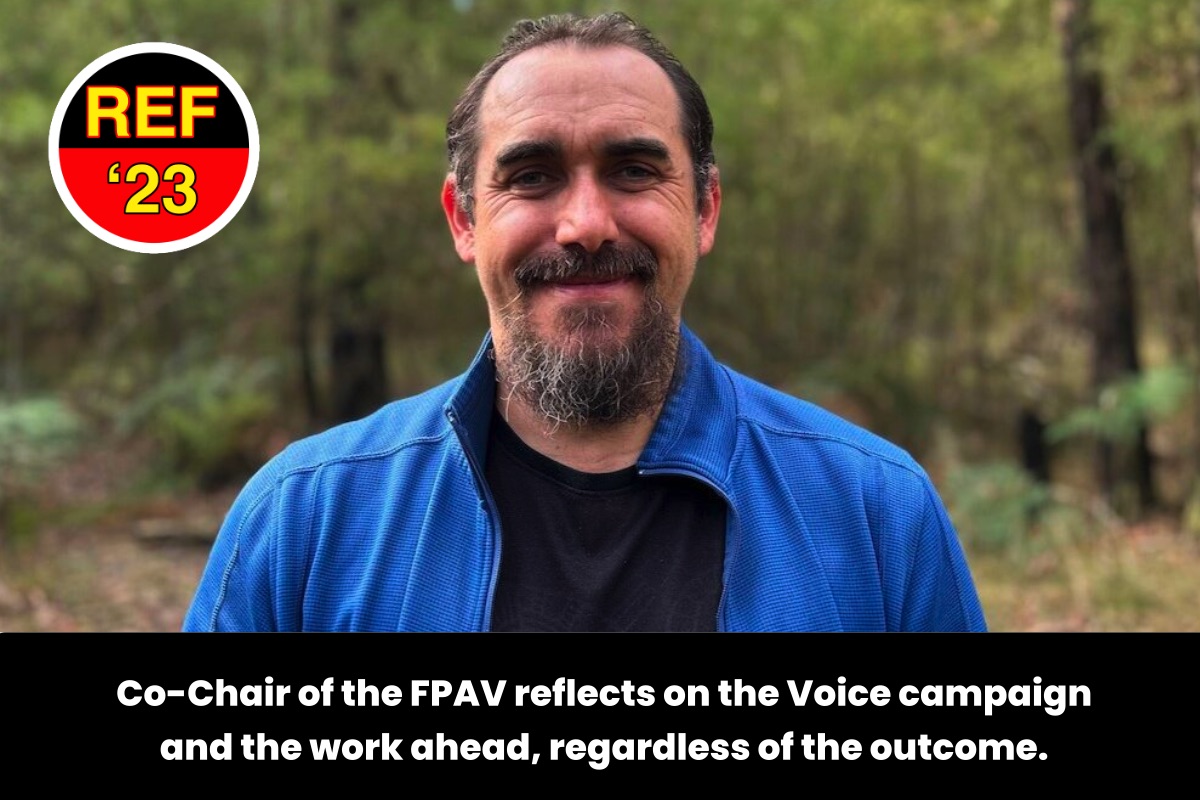
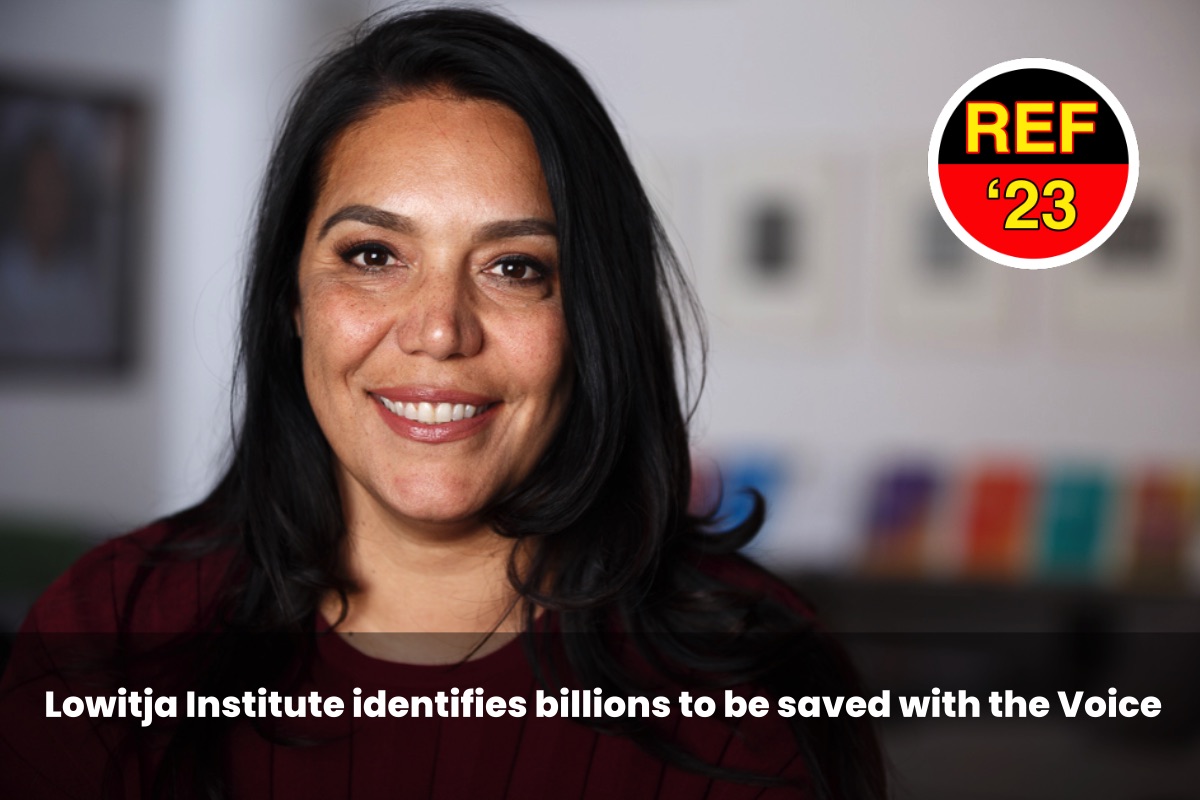
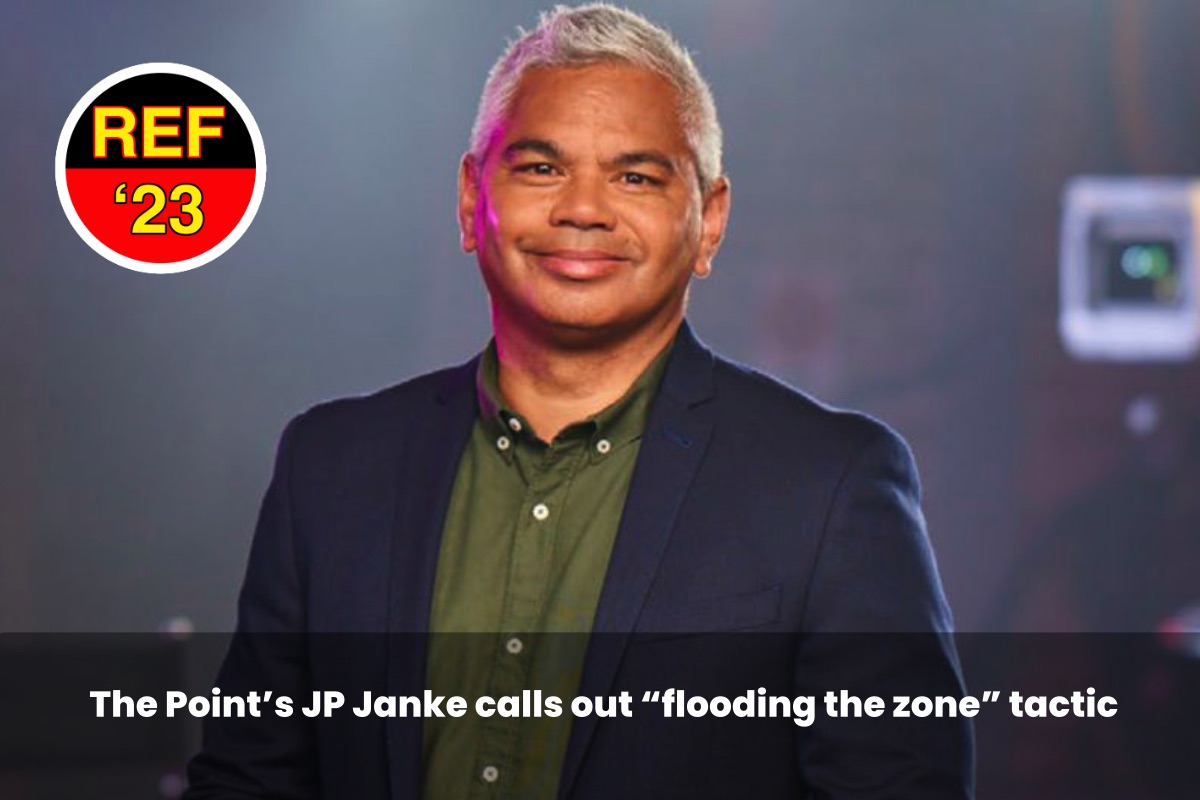
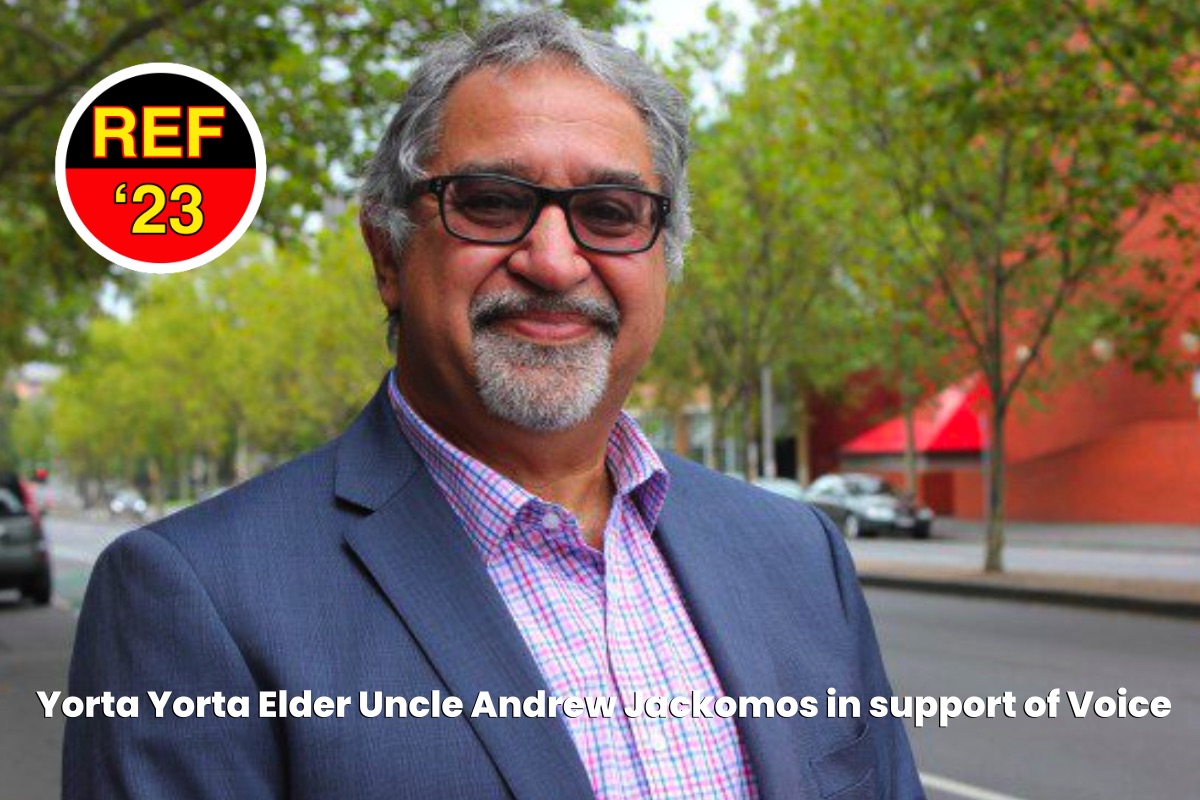
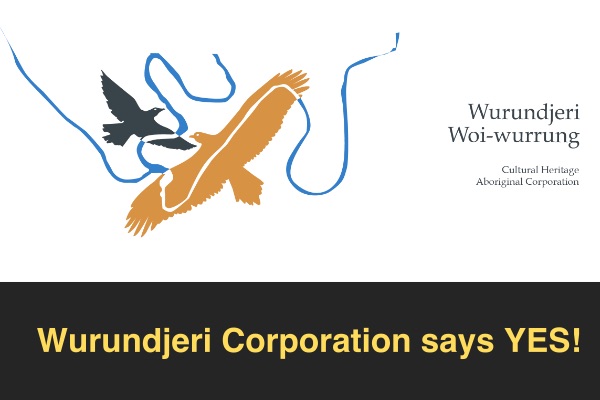

0 Comments